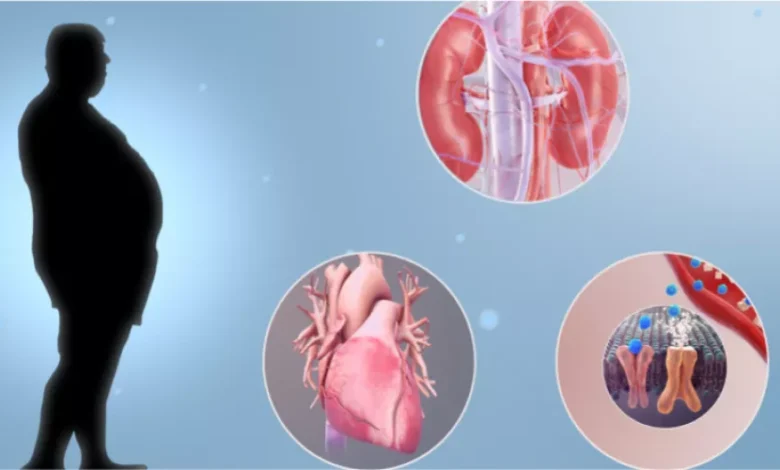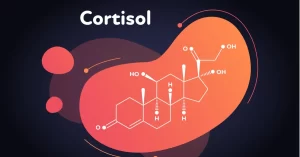5 types of hormones that affect body weight

1
The body’s entire system of organs, organs, and vital processes does not carry out its functions in a random manner, but rather is subject to management and control by an integrated hormonal system consisting of a number of hormones, each of which is assigned specific functions, in addition to its noticeable impact on the general health of the body. For example, the hormone cortisol will have the ability to deal with conditions. Stress and fatigue are important to control various stressful situations. As for the female sex hormones, which are responsible for changes in the menstrual cycle, reproductive functions, and menopause, with all that, it is important to carefully monitor any signs that indicate that you are suffering from an imbalance in hormonal levels to ensure your protection from negative effects on public health and to avoid risks. Serious health complications. In our next article, we will discuss 5 types of hormones that affect body weight.
5 types of hormones that affect body weight


Types of hormones that affect body weight
It is one of the effects that are largely controlled by hormones, which is body weight, which is not subject to the control of one type of hormone. Rather, many types overlap to form a direct cause responsible for hormonal obesity resulting from hormonal fluctuations in hormone levels, whether rising or falling, which makes the person either gain more weight. Overweight or suffering from severe weight loss, today we will review these five hormones as follows:
1- Leptin hormone


Leptin hormone
It is one of the hormones specialized in a regulated and effective role in managing the appetite process, as it drives the desire to eat and is called the satiety hormone. It is responsible for the function of feeling full and satiated, and cells and fatty tissues produce and secrete it in the body. Its importance is in maintaining energy balance levels and regulating its consumption rates. There is a belief People who suffer from obesity and overweight have resistance to the hormone leptin, which as soon as its level increases, the person will experience an increase in satiety and his appetite for different foods will decrease. It is important to know that just as this hormone is responsible for satiety, it is also responsible for the feeling of hunger, as Its mechanism of action is based on the release of the hormone by fat cells to play a role in informing the brain cells of the amount of fat present in the body. When the levels produced from the hormone are large, the brain then receives a message that the fat reserve in the person’s body is sufficient and that he has no need for food, which stimulates the feeling of fullness. If the message sent is that the amount of fat is low, then this gives a feeling of hunger
2- The hormone insulin


Insulin hormone
When we mention the hormone insulin, our minds immediately turn to its role in regulating the way the body absorbs sugar. Therefore, it is an essential treatment in the treatment plan for diabetics. The beta cells in the pancreas undertake the task of secreting and releasing it into the body, which contributes to controlling blood sugar levels, as it is the factor that transports sugar from the blood and delivers it. It is a vital process that takes place according to natural steps that begin with the introduction of food into the body and is followed by an increase in the blood sugar level. This activates the process of manufacturing insulin, which is responsible for retaining excess amounts of sugar and storing it in the form of fat in the body.
3- Ghrelin hormone


Ghrelin hormone
In contrast to the basis of the action of the leptin hormone, there is the hormone ghrelin, which is the main hunger hormone and whose secretion process begins in the stomach. We can say that it works as an appetite stimulant, so if your stomach is completely empty of any food, the levels of the hormone ghrelin will automatically increase, making you more desire to eat. Eating food as a result of stimulating your feeling of hunger, and as its indicators rise, it will stimulate your desire to eat larger quantities of food and thus weight gain is expected.
Read also 7 eating habits that seem healthy but cause weight gain
4- Cortisol hormone


Cortisol hormone
As a kind of natural reaction and response of the body in times of stress and in moments of chronic stress, the adrenal gland releases a hormone known as cortisol, or the stress hormone. Research has confirmed the existence of a relationship between high levels of the hormone and the amounts of excess fat stored in the body, specifically around the abdominal area, and you can Note that while you are experiencing moments of anxiety, tension, or pre-depression, you will be more inclined to overeat as a result of increased appetite.
5- Thyroid hormones


Thyroid hormones
The thyroid gland is located below the neck area and plays an effective role stemming from its functional importance in managing many functions in the human body, as it assumes the role of controlling the metabolism process. Perhaps body weight is among the common and noticeable symptoms that the thyroid gland controls its loss or gain. When a person suffers from hyperthyroidism The activity of the thyroid gland stimulates the secretion of the hormone thyroxine, indicating an increase in thyroid hormones, causing unjustified weight loss. Conversely, in the case of hypothyroidism, there will not be enough thyroxine, which leaves a negative impact on the metabolism and fat burning rates, and this is what causes… Weight gain leads to the condition of thyroid obesity




